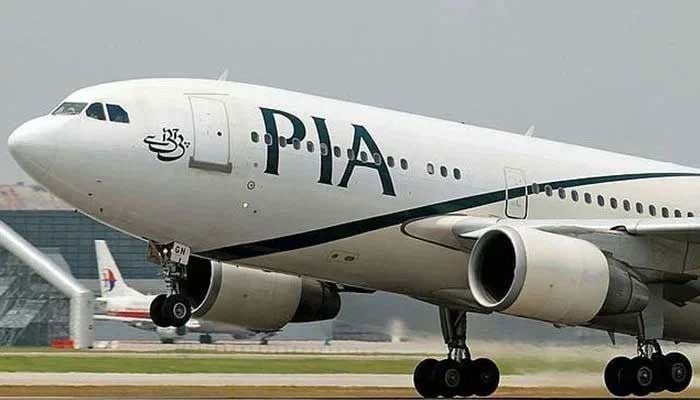Capital suggestion: Privatizing PIA
Pakistan's state-owned enterprises (SOEs) have been a focal point of national discourse.
There isn't a company like Pakistan International Airlines (PIA) – anywhere in the world. There isn’t a company that has accumulated liabilities of Rs830 billion and total assets of Rs171 billion – anywhere in the world. No other airline globally has such a significant disparity between its liabilities and assets. To put this in perspective, if these liabilities were equally distributed among Pakistan's estimated 35 million families (based on the 2023 census), it would translate to a burden of Rs24,000 per family.
There is no company quite like PIA anywhere in the world. Within the global aviation sector, PIA's profile is distinctly unique: operating with fewer than two dozen aircraft and employing 434 pilots. PIA has 500 employees per aircraft. In comparison, major airlines such as Emirates, Etihad, and Qatar Airways maintain significantly lower employee-to-aircraft ratios, with Emirates at 231, Etihad at 211, and Qatar at 190.
We have had 14 prime ministers over the past three decades: Benazir Bhutto, Miraj Khalid, Nawaz Sharif, Mir Zafarullh Khan Jamali, Ch Shujaat Hussain, Shaukat Aziz, Mohammad Mian Soomor, Yousaf Raza Gilani, Raja Pervez Ashraf, Mir Hazar Khan Khoso, Nawaz Sharif, Shahid Khaqan Abbasi, Nasir ul Mulk and Imran Khan. Question: Throughout these leadership changes, did PIA ever become a central priority for any government? Why not? Why were PIA’s woes left unaddressed till they grew to Rs830 billion?
For decades, Pakistan's state-owned enterprises (SOEs) have been a focal point of national discourse. Privatization has consistently been advocated as a remedy. Now, the government is ‘signaling’ its commitment to economic reform like never before. The markets are echoing this resolve: Pakistan’s US dollar-denominated Eurobonds and Sukuks have witnessed a sustained rally in recent weeks, positioning them among the world’s leading bonds. Additionally, the benchmark KSE-100 Index, reflecting the performance of the country's largest companies, has achieved a record closing high.
The significance of clear 'signaling' cannot be emphasized enough. Investors and businesses depend on ‘signals’ from governments for their investment decisions. Successful privatization of PIA would serve as a potent 'signal', illustrating three key points. First, it would underscore the government's resolve to reform, showcasing its determination to address entrenched economic issues. Second, it would signify a shift away from state control towards a more market-oriented economy, potentially drawing in new investment and expertise. Lastly, it would highlight the government's commitment to fiscal responsibility.
To be certain, successful privatization requires careful planning and execution. Selecting the right buyer, ensuring transparency, and protecting employee rights are all crucial considerations. However, the potential rewards are significant.
Beyond immediate benefits, the successful privatization of PIA would be a turning point. It would send a clear ‘signal’ of reform and progress, fostering a more positive economic climate that benefits all Pakistanis. Privatizing PIA wouldn't just be about financial benefits; it would be a visible demonstration of the government's willingness to confront difficult issues and embrace a new approach. Is the SIFC playing a behind-the-scenes role in all of this?
The writer is a columnist based in Islamabad. He tweets/posts @saleemfarrukh and can be reached at: farrukh15@hotmail.com
-
 Bridgerton’s Michelle Mao On Facing Backlash As Season Four Antagonist
Bridgerton’s Michelle Mao On Facing Backlash As Season Four Antagonist -
 King Charles Gets New ‘secret Weapon’ After Andrew Messes Up
King Charles Gets New ‘secret Weapon’ After Andrew Messes Up -
 Shia LaBeouf Makes Bold Claim About Homosexuals In First Interview After Mardi Gras Arrest
Shia LaBeouf Makes Bold Claim About Homosexuals In First Interview After Mardi Gras Arrest -
 Princess Beatrice, Eugenie ‘strained’ As They Are ‘not Turning Back’ On Andrew
Princess Beatrice, Eugenie ‘strained’ As They Are ‘not Turning Back’ On Andrew -
 Benny Blanco Addresses ‘dirty Feet’ Backlash After Podcast Moment Sparks Online Frenzy
Benny Blanco Addresses ‘dirty Feet’ Backlash After Podcast Moment Sparks Online Frenzy -
 Sarah Ferguson Unusual Trait That Confused Royal Expert
Sarah Ferguson Unusual Trait That Confused Royal Expert -
 Prince William, Kate Middleton Left Sarah Ferguson Feeling 'worthless'
Prince William, Kate Middleton Left Sarah Ferguson Feeling 'worthless' -
 Ben Affleck Focused On 'real Prize,' Stability After Jennifer Garner Speaks About Co Parenting Mechanics
Ben Affleck Focused On 'real Prize,' Stability After Jennifer Garner Speaks About Co Parenting Mechanics -
 Luke Grimes Reveals Hilarious Reason His Baby Can't Stop Laughing At Him
Luke Grimes Reveals Hilarious Reason His Baby Can't Stop Laughing At Him -
 Why Kate Middleton, Prince William Opt For ‘show Stopping Style’
Why Kate Middleton, Prince William Opt For ‘show Stopping Style’ -
 Here's Why Leonardo DiCaprio Will Not Attend This Year's 'Actors Award' Despite Major Nomination
Here's Why Leonardo DiCaprio Will Not Attend This Year's 'Actors Award' Despite Major Nomination -
 Ethan Hawke Reflects On Hollywood Success As Fifth Oscar Nomination Arrives
Ethan Hawke Reflects On Hollywood Success As Fifth Oscar Nomination Arrives -
 Tom Cruise Feeling Down In The Dumps Post A Series Of Failed Romances: Report
Tom Cruise Feeling Down In The Dumps Post A Series Of Failed Romances: Report -
 'The Pitt' Producer Reveals Why He Was Nervous For The New Ep Of Season Two
'The Pitt' Producer Reveals Why He Was Nervous For The New Ep Of Season Two -
 Maggie Gyllenhaal Gets Honest About Being Jealous Of Jake Gyllenhaal
Maggie Gyllenhaal Gets Honest About Being Jealous Of Jake Gyllenhaal -
 'Bridgerton' Star Luke Thompson Gets Honest About Season Five
'Bridgerton' Star Luke Thompson Gets Honest About Season Five




